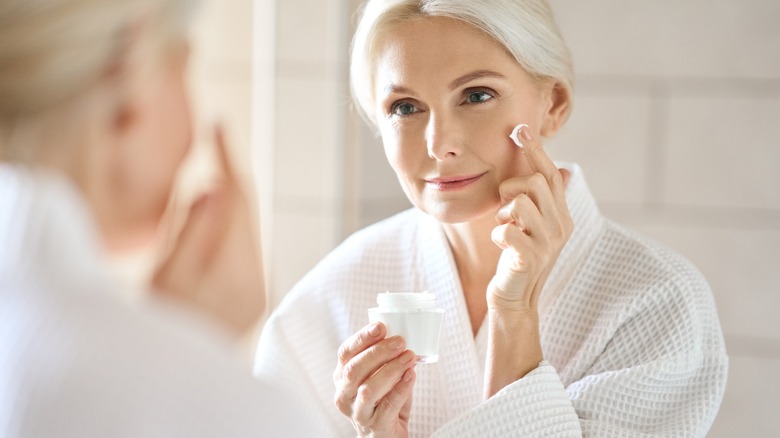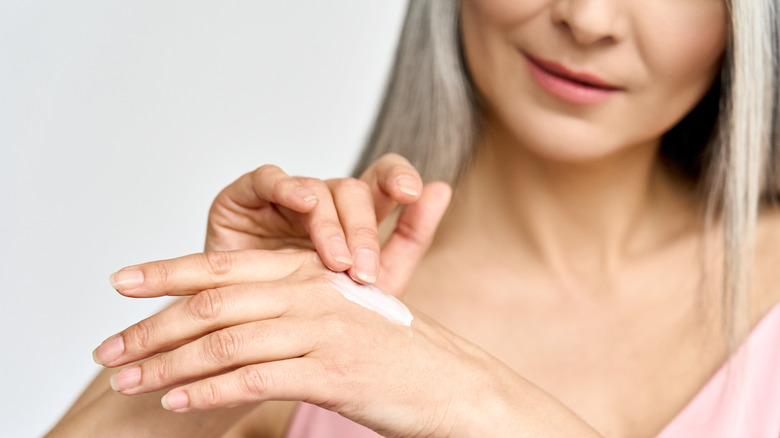Why Your Skin Becomes More Sensitive As You Age
With society's obsession with achieving flawless glass skin, there is an endless selection of products on the market that claim to halt aging and revive your skin. Many people invest in skincare products to slow down the aging process and give their skin a boost. A study showed that in 2020, 1.68 million Americans spent $500 or more on skincare products (via Statista).
Collagen is key to having plump, voluminous skin. Functional medicine practitioner Robert Rountree, M.D., tells MBG Lifestyle, "Collagen literally holds us together — it makes up 30% of the body's protein and 70% of the skin's protein". Unfortunately, as we age, our body slows down and begins to produce less collagen. According to Scientific American, your body's collagen production begins to reduce after the age of 20, it produces 1% less collagen every year. This causes the skin to become more susceptible to fine lines and wrinkles. Not only does your skin lose fat and smoothness with age, but it also becomes more sensitive as well.
Why does skin become more sensitive with age?
Skin sensitivity can be painful, stressful, and difficult to manage. With age, our bodies begin to slow down and change, and this also applies to our skin. Paul Jarrod Frank, a board-certified dermatologist, tells Byrdie, "Sensitive skin can be an ongoing condition caused by a treatment, age, or biological skin disorder."
Per Cleveland Clinic, as we get older, our skin loses its elasticity and thickness. Once the surface layer begins to thin and flatten, the skin becomes more transparent and fragile. As it thins, it has less padding, which makes it much more sensitive and vulnerable to various injuries. The sebaceous glands produce less oil as time goes on too, which leaves the skin vulnerable to dryness and itchiness (via Medline Plus). All of these changes mean that the skin becomes more prone to bruising, bleeding, redness, irritation, rashes, and more. It also may take your skin longer to heal from injuries than it previously would have.
How to remedy sensitive skin
If you've begun to notice your skin becoming more sensitive with age, don't panic. There are preventative measures you can take to avoid sensitivity and pain. One of the most important ways to protect your skin is by wearing sunscreen with an SPF of at least 15 before stepping outside. Wear protective clothing whenever you can, as too much sun exposure can cause redness and stinging. Avoid taking hot showers and baths often, as this will dry out your skin and make it more prone to sensitivity.
Build a skincare routine for sensitive skin with products specifically designed to soothe your skin type. We recommend Aveeno's Calm and Restore Skin Therapy Balm For Sensitive Skin for your face. This face balm is dermatologist-recommended and fights dry, red, flaking, and tight skin. For your body, try Aveeno's Restorative Skin Therapy Oat Repairing Cream for dry skin. This cream nourishes and repairs sensitive, distressed, and dry areas.


